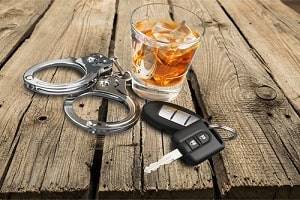
DRIVING IS OPERATING … BUT OPERATING IS NOT NECESSARILY DRIVING!
In every state, it is illegal for a driver to operate a motor vehicle while impaired by the effects of alcohol, drugs, or some combination of drugs and alcohol. This restriction applies to all motorized vehicles including cars, trucks, motorcycles, commercial vehicles and boats. In Wisconsin, drunk driving offenses are typically referred to as OWI, which stands for Operating While Intoxicated. (Some refer to this charge as DUI, which stands for Driving Under the Influence.)
Operating While Intoxicated, whether it’s your first or fifth, whether it’s based on alcohol or drugs, no matter what you’re driving or what kind of license you have, involves the same core set of elements.
First, the prosecutor has to prove you drove or operated a motor vehicle on a highway or a “premises held out to the public for motor vehicle usage.”
Second, they have to prove you were “under the influence” of alcohol or another drug, or had a prohibited blood alcohol concentration in excess of a legal limit.
As simple as it sounds, it gets a lot more complicated from there.
What does “Operate” mean?
Proving someone “drove” is easy enough to understand. It means your vehicle moves, no matter how slow. But what does “Operate” mean?
The law defines “operating” as the “physical manipulation or activation of any of the controls of a motor vehicle necessary to put it in motion.” That’s more words, but it doesn’t really answer the question.
Plain English. You can be arrested and successfully prosecuted in Wisconsin for “operating” while impaired for sure if your engine is running, even if the car is in park and you are asleep trying to sober up. (Remember though you have to be on a highway, too.) You will also be in trouble, most likely, if you do any of the things you would normally do to start a vehicle, such as put the keys in the ignition, turn on the electrical, take the car out of park, maybe even turn on the headlights. Even if it is not your intent, these are all parts of what you do to start up a vehicle to prepare it for motion.
What is a “Motor Vehicle”?
Any self-propelled device by which a person may be transported on a highway. It includes cars, trucks, vans and motorcycles, motorized scooters, trolleys and buses that operate on overhead electric wires, as long as they are not on rails. Snowmobiles and Boats have their own statutes.
Not included are trains, electric wheel chairs, bicycles, and animal drawn vehicles.
 What counts as a “Highway”?
What counts as a “Highway”?
Any “official” roadway in the state that you might drive on would count as a highway. Also counting are “premises held out to the public for motor vehicle usage,” which includes things like business parking lots, parking lots at work, and parking lots at an apartment complex, unless there are four or fewer units. Driveways or single family farms are not included.
What does “Under the Influence” mean?
Under the Influence means impaired by alcohol or other intoxicant or controlled substance. It does not mean extremely impaired or totally impaired or badly impaired or even materially impaired (unless there is an accident involving injury or death). Just impaired. A safe rule of thumb to use is the billboard you may have seen: Buzzed Driving is Drunk Driving. That may not be the actual legal standard, but if you follow that rule you will stay out of trouble. If your case involves a combination of alcohol and drugs, or a combination of different drugs, under the influence means any impairment by intoxicating chemicals that prevents a person from driving safely.
Under the Influence includes being influenced by alcohol, any other intoxicant (like sniffing paint), a controlled substance or its “analog” (the chemicals it turns into inside your body), or any combination of these. Many narcotic prescription drugs are “controlled substances” so yes, when the bottle says don’t operate heavy machinery, pay attention.
What does “Prohibited Blood Alcohol Concentration” mean?
For most drivers, it means 0.08% of alcohol by weight in the blood or 0.08 grams of alcohol in 210 liters of breath. For drivers with more than 3 convictions, the figure is 0.02. Commercial drivers are over the limit at 0.04. (There are also other commercial driver laws that prohibit having anything to drink within 4 hours of driving or having a blood alcohol percent over 0.00.)

What are the OWI Penalties?
Wisconsin law prescribes penalties for OWI offenses which include, but are not limited to:
First Offense OWI in Wisconsin
Significant monetary fines or forfeiture ranging from $150-$300, surcharges and driver's license revocation for up to 9 months.
Second Offense OWI in Wisconsin
Possible jail time (up to 6 months), significant monetary fines of Fine of $350 to $1,100, surcharges, and mandatory driver’s license revocation for at least 12 months.
Third Offense OWI in Wisconsin
Fine or forfeiture ranging from $600-$2,000 and 45 days to 1 year confinement in jail/prison.
Fourth Offense OWI in Wisconsin
(within 15 years of the previous conviction or after the second OWI in combination with two other serious OWI-related offenses such as injury by intoxicated use of a vehicle or second-degree reckless homicide involving a vehicle)
Updated Dec. 1, 2018: Class H felony. Automatic $600-minimum fine and automatic 60-day jail sentence. Maximum penalties are consistent with a Class H felony (fine of up to $10,000 and/or up to six years in prison).
Fifth & Sixth Offense OWI in Wisconsin
Class G felony. Minimum, mandatory fine: Not be less than $600 and as much as $25,000. Minimum of 6 months in jail, maximum of 10 years in prison, plus other fees and surcharges, 2-3 years driver’s license revocation, 1-3 years required ignition interlock device in vehicle.
What to do if You've Been Arrested and Charged with OWI in Wisconsin
If you are facing OWI, DWI, DUI, BAC or PAC charges in Wisconsin, you should contact a skilled criminal defense attorney to assist in your defense as soon as possible.
Contact us today for a free consultation. It is crucial to retain an experienced criminal defense lawyer as soon as possible. People often make their cases worse by trying to handle these situations alone. Please contact us by text or phone at (414) 774-6000 or email at laura@jlfwisconsin.com anytime.
*Any articles in the Libra or posted by Jones Law Firm LLC are not legal advice for a particular client or situation. Further no attorney-client relationship is intended or created with this post.*

